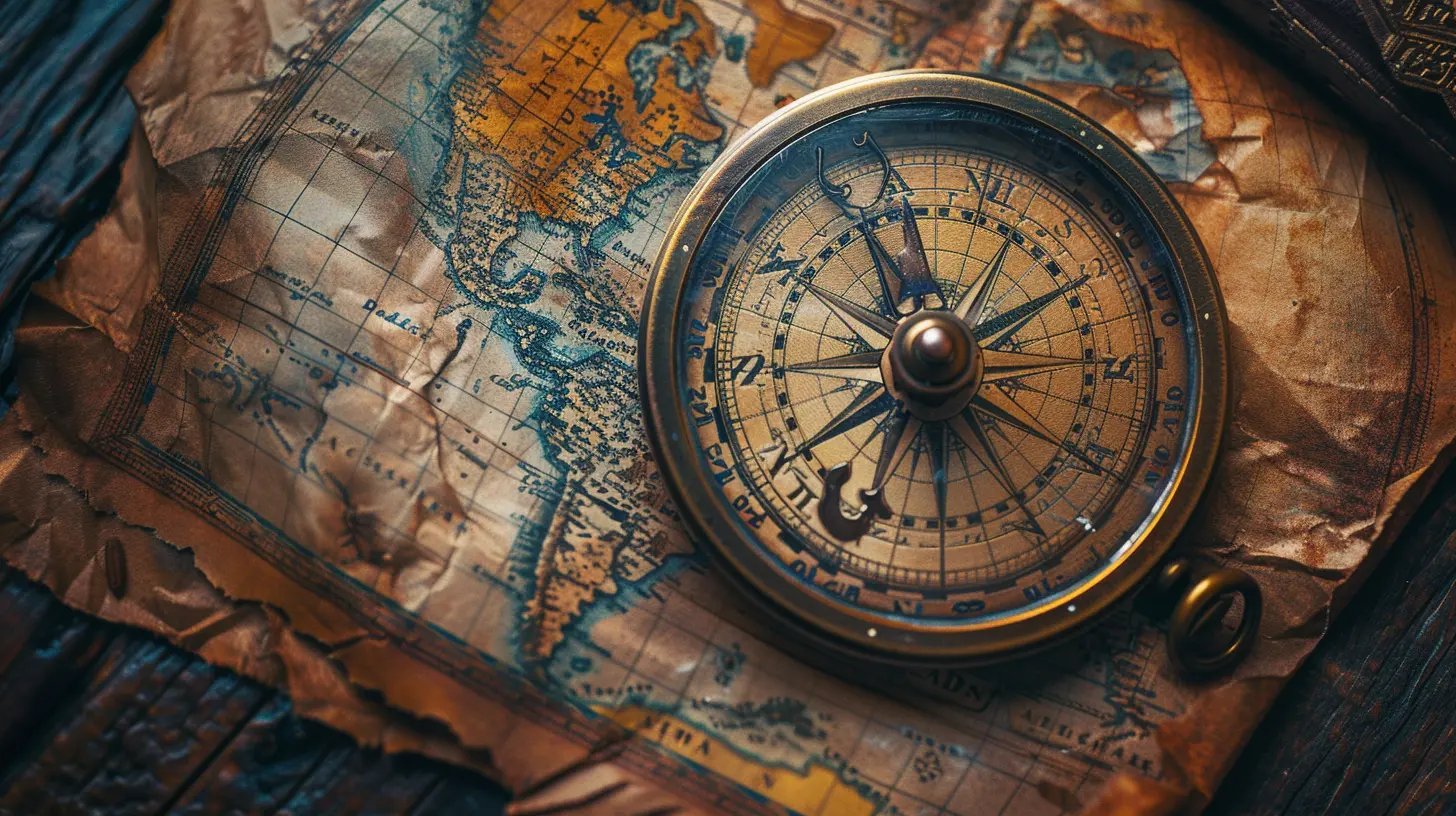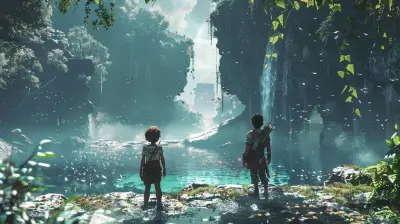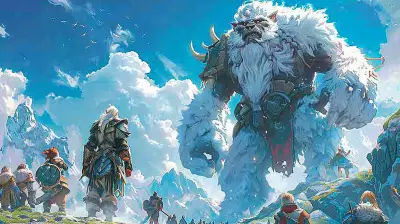Exploration and Discovery: Elements that Define Great Adventure Games
18 August 2025
Adventure games have always held a special place in the hearts of gamers. Unlike your standard run-and-gun action titles or mindless button mashers, these games pull you in with rich worlds, compelling characters, and the thrill of the unknown. Ever wondered what makes an adventure game truly great? It's not just the quests or the slick graphics. It's the magic of exploration and discovery — the core essence that gets our heart racing and brains ticking.
Let’s take a deep dive into what really makes adventure games tick and why we keep coming back to them, even after all these years.
The Allure of the Unknown
Think back to the first time you booted up an adventure game. Maybe it was the mystical forests of The Legend of Zelda, the foggy streets of Silent Hill, or the sprawling universe in Mass Effect. What hooked you?It probably wasn’t just the combat or puzzles. It was the sense that there was something bigger out there—secrets hidden just beyond the bend, lore buried beneath centuries, and the thrill of not knowing what’s coming next.
At their core, adventure games are curiosity simulators. They tap into that very human desire to uncover, to understand, and to piece together the unknown. That’s exploration and discovery. And it’s beautiful.
World-Building: The Backbone of Exploration
If you’re gonna set out on a grand adventure, the world better be worth getting lost in.Immersive Environments
Let’s get real: no one wants to explore a bland, soulless map. Amazing adventure games craft environments that feel alive — detailed forests where you can almost feel the breeze, ancient crypts echoing with forgotten history, and bustling cities that actually feel lived in.Games like Elden Ring or Red Dead Redemption 2 absolutely nail this. Every corner of the map tells a story. You’re not just going through the motions; you’re engaging with a living, breathing world that invites curiosity.
Dynamic World Interactions
Ever stumble upon a hidden village that wasn’t even marked on your map? That’s the kind of stuff that sticks with you. Interactivity gives the world texture. Whether it’s NPCs with their own routines in Skyrim or hidden notes in The Last of Us, small details always reward players who take the time to explore.
Character-Driven Discovery
You know what makes all that world-building even more impactful? Characters that make you want to know more.Meaningful NPCs
Let’s be honest, we’ve all clicked through mindless dialogue trees just to get to the next quest. But great adventure games give us NPCs we want to talk to. They're not just quest givers — they’re part of the journey.In The Witcher 3, for instance, every side character has a story. Some of them tug at your heartstrings, some give you a good laugh, and others leave you questioning morality.
Companion Dynamics
Nothing makes exploration more fun than a good travel partner. Characters like Ellie from The Last of Us or Alistair from Dragon Age don’t just tag along — they offer insights, crack jokes, and even change based on your decisions. They grow with you, and that makes the journey all the more personal.
Storytelling Through Discovery
Adventure games rarely feed you everything upfront. And that’s a good thing.Environmental Storytelling
You ever walk into a ruined village with no music, no enemies, no quests — just silence and wreckage? That’s storytelling. Visual cues, scattered notes, blood stains, forgotten toys — all whisper a story that you, the player, piece together.Games like Dark Souls are masters at this. The world itself tells a tale. You don’t need a narrator; you just need to open your eyes.
Non-Linear Narratives
Not everything needs to go from A to B. Sometimes, taking a detour opens up a whole new layer of the story. Non-linear quests and branching narratives don’t just offer variety; they make you feel like your choices matter.Ever replayed Detroit: Become Human just to see how one decision could change everything? That’s the power of discovery through choice.
Puzzles and Challenges: Brains Before Brawn
Exploration isn’t always about what you find—sometimes it's about what you figure out.Integrated Puzzles
We’re not talking about random sliding tile puzzles jammed in for filler. The best adventure games weave challenges seamlessly into the story and environment. Zelda’s dungeons, for example, test your wits in ways that feel natural to the world.Rewarding Curiosity
Got sidetracked by a weird symbol on a cave wall? Spent 30 minutes trying to light a torch that looked just a little too out of place? In great adventure games, curiosity is always rewarded—whether it’s with lore, gear, or a hidden boss.The Role of Atmosphere and Tone
Let’s talk vibes. Because adventure isn’t just about what you’re doing—it’s about how it feels.Music and Sound Design
Ever paused the game just to let the soundtrack sink in? Games like Journey, Ori and the Blind Forest, and Firewatch use music like a storytelling tool. The right score can make you feel hopeful, haunted, or heroic.And sound isn’t just about music. Footsteps crunching in snow, leaves rustling, distant howls—they all pull you deeper into the world.
Visual Style
Not every game needs hyper-realistic graphics. Sometimes, a unique art style tells a better story than realism ever could. Oxenfree’s eerie visuals or Gris’ dreamlike art elevate the storytelling and exploration.Freedom vs. Guidance: Striking the Right Balance
One challenge developers face is guiding the player without holding their hand.Open-World vs. Linear
Open-world games offer tons of freedom, but too much can feel overwhelming. Linear games, on the other hand, can feel too rigid. The sweet spot? A semi-open world with purposeful exploration—like God of War (2018) with its interconnected realms.Subtle Direction
Great games drop hints without breaking immersion. A light trail, a curious animal, a distant tower—these breadcrumbs gently push you without saying, “Hey, go here!”Emotional Payoff: Why It All Matters
At the end of the day, exploration and discovery aren’t just about seeing new things—they’re about feeling something.Nostalgia and Wonder
Ever look back at a game and feel a pang of nostalgia? That’s not just memory—it’s emotional investment. Games like Shadow of the Colossus stay with us not because of flashy mechanics, but because they made us feel small, awestruck, and deeply connected to the world.Personal Growth
Here's the kicker: the best adventure games don’t just change their characters; they change us. They make us think about choice, consequence, morality, and identity. And that’s what gives exploration its true depth.Final Thoughts
So, what really defines a great adventure game? It's not just the loot or the boss fights. It's the heartbeat of exploration. The slow burn of discovery. The moments that make you pause and just be in the world.Whether you're scaling a snowy peak, decoding ancient runes, or just sharing a quiet moment with a companion, it's this blend of curiosity and connection that sets adventure games apart.
So next time you fire up an adventure title, don’t rush. Take a detour. Poke around that suspicious cave. Chat up that random old man by the river. Who knows? The best part of the game might be waiting just around the corner.
all images in this post were generated using AI tools
Category:
Adventure GamesAuthor:

Luke Baker
Discussion
rate this article
2 comments
Simone McLemore
Great insights! Adventure games thrive on exploration!
December 28, 2025 at 3:47 PM

Luke Baker
Thank you! I completely agree—exploration is key to creating memorable experiences in adventure games!
Ashley Mathews
Adventure games thrive on exploration and discovery, engaging players in immersive worlds that spark curiosity. The thrill of uncovering secrets and solving puzzles is what truly defines greatness in this genre.
August 18, 2025 at 4:18 AM

Luke Baker
Absolutely! Exploration and discovery are core elements that elevate adventure games, immersing players in captivating worlds filled with secrets and challenges that enhance the overall gaming experience.


